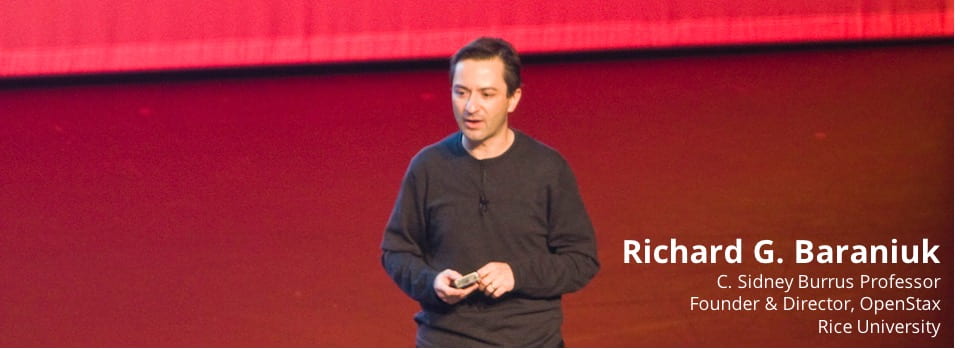 Revitalizing education at all levels and in all subject areas is a major global priority. In order to properly educate the leaders of tomorrow, we must move beyond the centuries-old, ingrained paradigm of education that views the process of learning as “one-way street” in which knowledge is transmitted from teacher to learner via paper textbooks and lectures. Instead, we must provide learners with tools to effectively engage in self-regulated learning outside the classroom.
Revitalizing education at all levels and in all subject areas is a major global priority. In order to properly educate the leaders of tomorrow, we must move beyond the centuries-old, ingrained paradigm of education that views the process of learning as “one-way street” in which knowledge is transmitted from teacher to learner via paper textbooks and lectures. Instead, we must provide learners with tools to effectively engage in self-regulated learning outside the classroom.
Over the past decades, significant progress has been made on computer-based personalized learning that is responsive to the needs, skills, and characteristics of individual students. A personalized learning system closes the learning feedback loop by continuously monitoring and analyzing learner interactions with learning resources in order to assess progress, and providing timely remediation, enrichment, or practice based on that analysis. Recently, learning analytics and personalized learning systems have leapt from the research lab to the marketplace. Indeed, much of the ed-tech startup activity and investment has been in this space.
Despite this early success, many important issues and challenges remain to be surmounted before personalized learning reaches the mainstream. The goal of this (annual) workshop was to bring together the intellectual leaders of this new movement in order to exchange ideas, network, and plot a course to the future. A particular focus was on how machine learning and “big data” have the potential to create new efficiencies in time and cost and significantly improve learning outcomes.
The workshop took place on 22 April 2013 on the Rice University campus.
Presenters
David Kuntz, VP-Research for Knewton
Steven Ritter, VP-Research for Carnegie Learning
Jascha Sohl-Dickstein, Khan Academy
David Pritchard, MIT
Neil Heffernan, WPI
Winslow Burleson, ASU
David Eagleman, BCM
Dan Wallach, Rice
Anna Rafferty, UC-Berkeley
Zach Pardos, MIT
Andrew Butler, Duke
Richard Baraniuk, Rice
Archived webcast is available here
